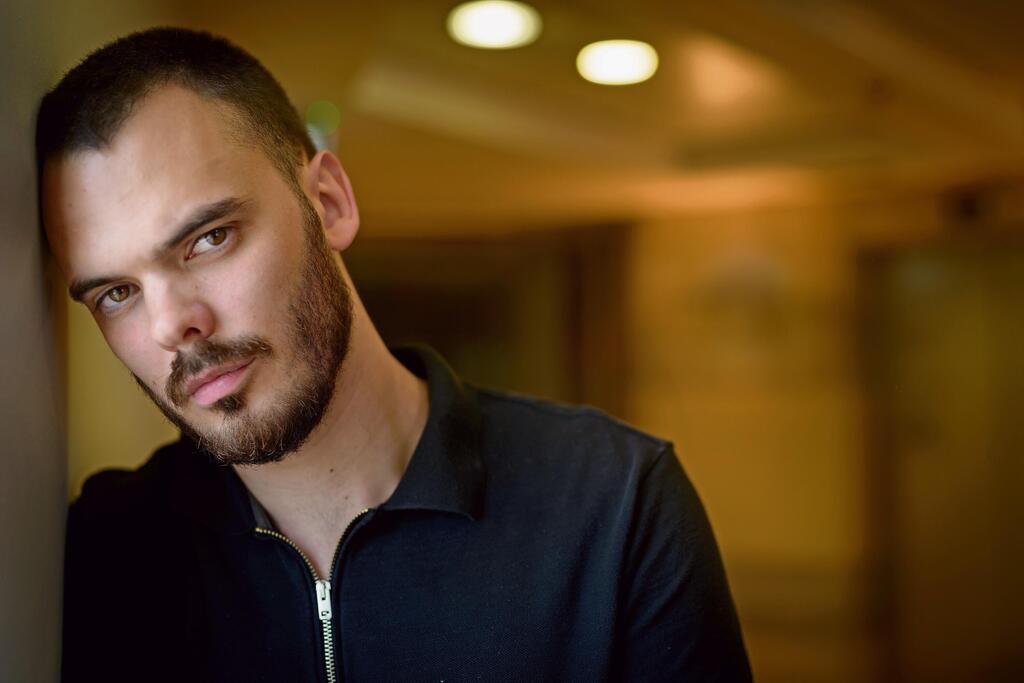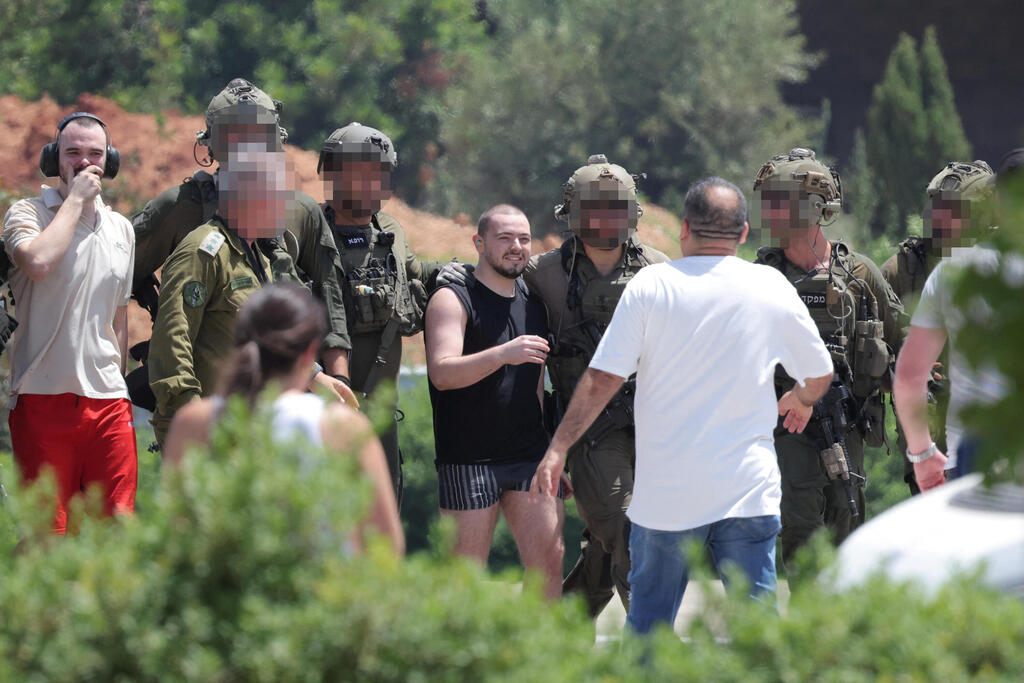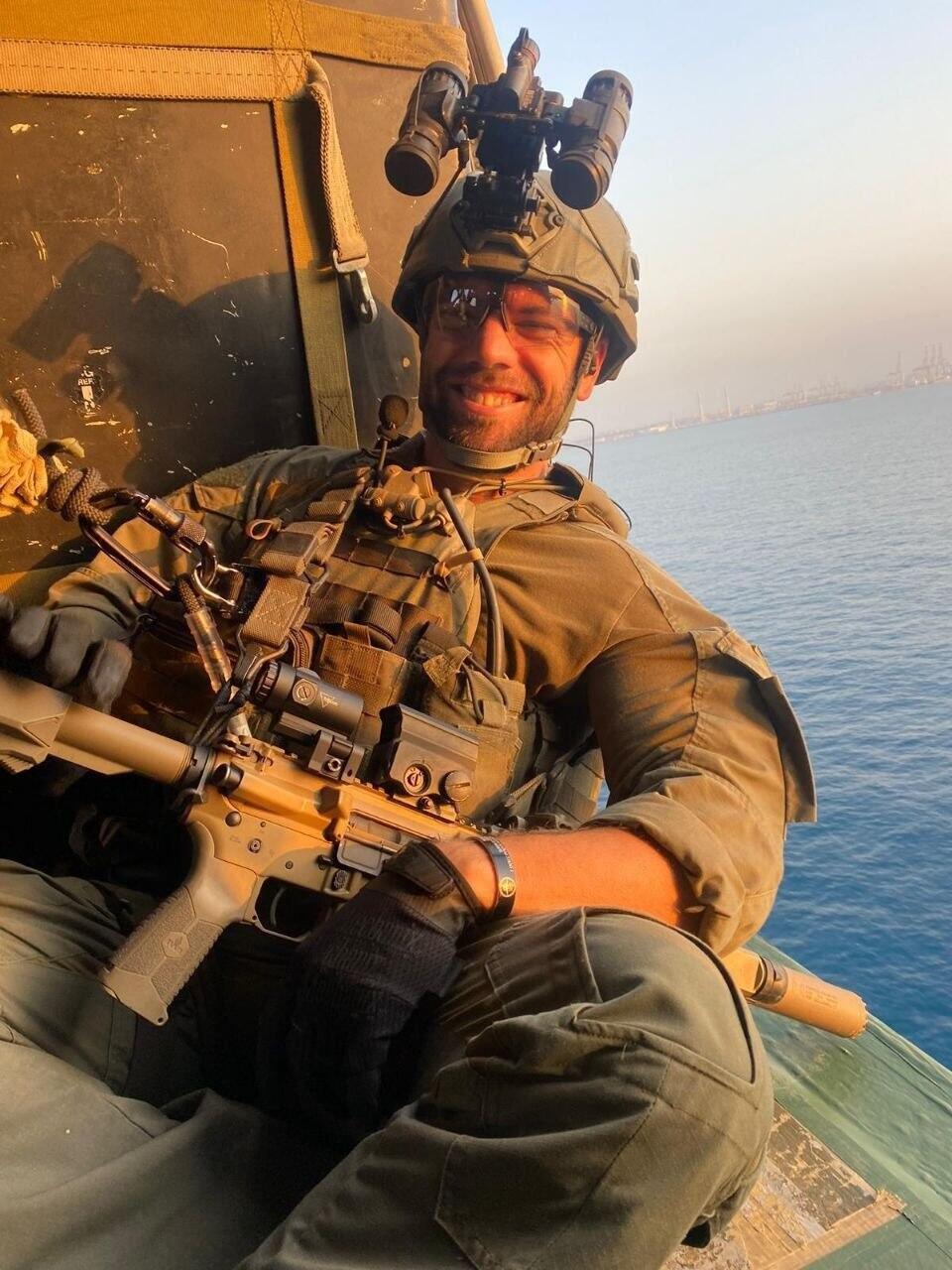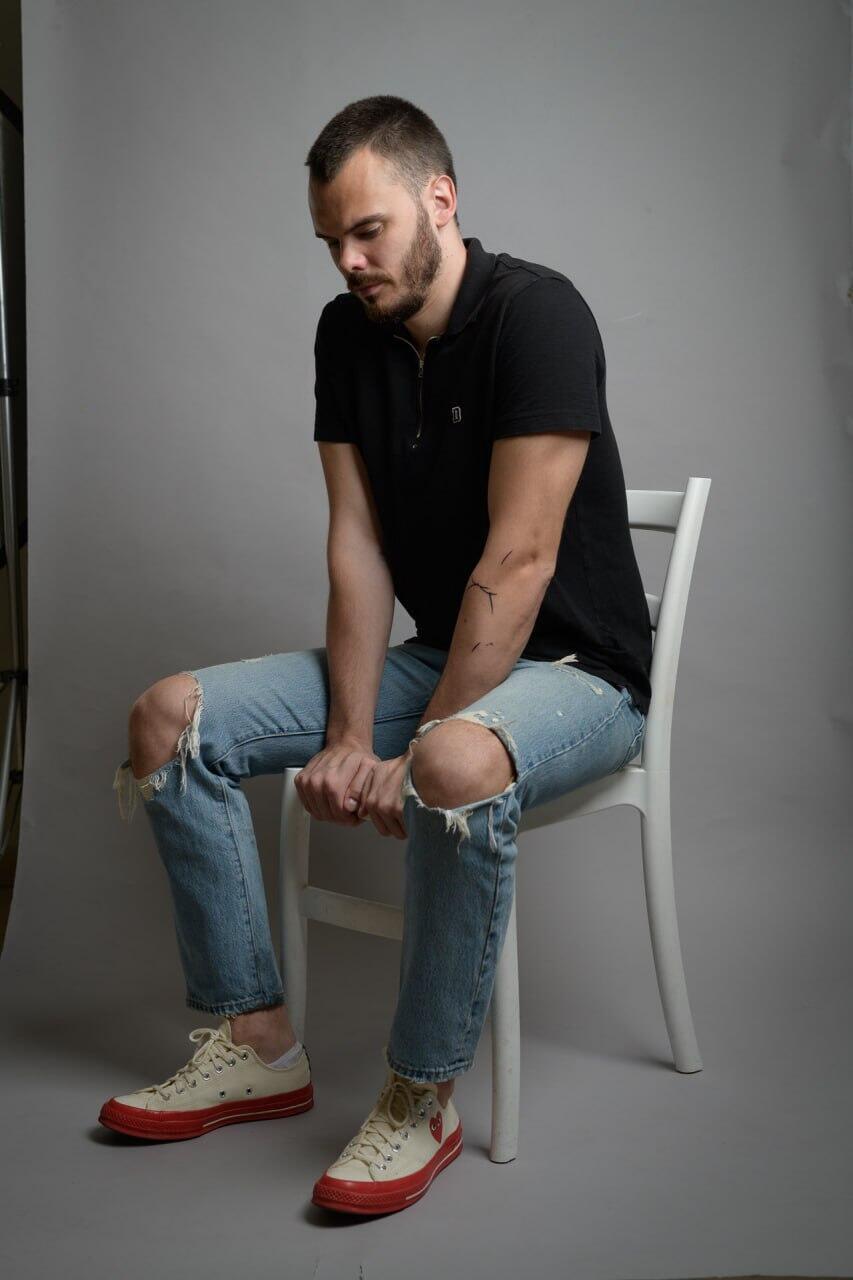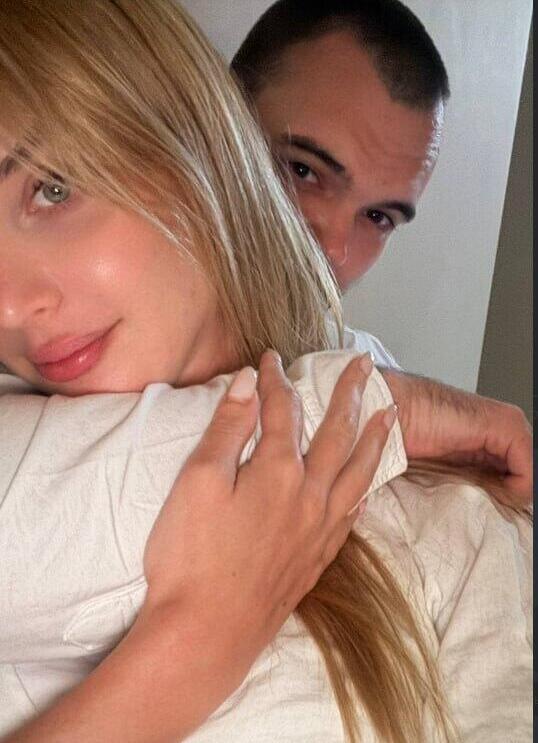Getting your Trinity Audio player ready...
Andrey Kozlov is the only hostage I spoke with who had no idea he was being taken to Gaza. "It took me about seven minutes of driving to realize I wasn’t being rescued but kidnapped," he says.
"We drove for a whole seven minutes before I realized that the car was not heading toward Tel Aviv but in the opposite direction, toward Gaza. Before I realized that the bearded man sitting behind us with a gun was not some Israeli special forces guy come to rescue us, but a terrorist."
Andrey Kozlov calls to join Tel Aviv rally for release of hostages
(Video: Hostages and Missing Families Forum)
As he recounts this, he sneaks a small, bittersweet smile. It’s the smile of a 27-year-old man who mocks his own naïveté. He was optimistic and innocent enough to believe that someone would actually come and rescue him from the massacre.
After eight months in captivity, Kozlov is no longer the same person he was on October 7—the one who believed everything would be okay. He has endured far too much in captivity—beatings, humiliations, physical and psychological abuse—and now he is on guard.
But on October 7, Kozlov was a handsome and charming young man who had immigrated from Saint Petersburg all by himself. His parents and brother, to whom he is very close, remained in Russia. Since he needed to support himself in the apartment he rented in Rishon LeZion, he took on various quick jobs that didn’t require knowing Hebrew. For example, security work, like at the Nova music festival.
After his kidnapping, he describes what he saw across the border. "When we crossed through the wall, we saw fields filled to the brim with Gazans—some on bicycles, some on donkeys, some on foot, and they were celebrating," he recounts.
"It was the party of their lives. Their joy was so wild and barbaric. I remember one face in particular. He looked like a predator. His eyes were wide open. They were trying to get into our car, banging hard on the windows. We tried to cover our faces with our hands while Shlomi [Ziv] kept driving.
"The 'bad guy' with us in the back—by this point, I realized he was the 'bad guy'—switched places with Shlomi and started driving. I don't know, maybe Gazans don’t usually get a driver’s license because he drove like a madman. Swerving right and left. I'm convinced I saw him run over a child in one of the turns, but the terrorist didn’t stop."
Eventually, the car stopped somewhere on the outskirts of Gaza. The terrorist driving handed them over to several other armed men and disappeared; they never saw him again. "They took us to the second floor of a building, tied our hands behind our backs with ropes and placed us on the floor. They started talking among themselves, and all I could think about was proving to them that I was a Russian citizen, that they had taken the wrong guy. My mind was focused on one thing—I had to survive this."
Most of the abuse was dealt to them at the beginning, but even later in their captivity, there were plenty of thugs who couldn't resist showing how much tougher they were than them. "Those first few days were really horrible. It took them two days to take me to the bathroom. Before that, they just gave me an empty water bottle and told me to use it with my hands tied. Later, they took me to urinate like I was a dog, with a rope like a leash, shouting 'go-go-go.' I told them, 'I need to pull down my pants to go to the bathroom and my hands are tied,' and they said, 'We don’t care.' It was so awful. I couldn’t do anything. They beat me, kneed me in the stomach. All the time I kept thinking, 'Do whatever you want to me, just please don’t touch my private parts.'"
Kozlov, along with two other hostages, rescued from Gaza by Israeli special forces in high-stakes operation
(Video: Israel Police)
Kozlov spent eight months in Gaza, changing hiding places no less than seven times. In some locations, they stayed for just one day, while in others, they remained for a week or three. By December, they were moved to their final location in the Nuseirat refugee camp in central Gaza, where they lived for six months until their rescue.
“In each place, the conditions and people were different,” he says. “There was our first apartment, with a guy who played cards with us and showed us news from Israel. That’s how we learned the situation in Israel was really bad, and there were many hostages. Some of them provided enough food, but there were places where we only had one meal a day. I lost close to 20 pounds.”
What was the worst place?
“A construction site that hadn’t been completed yet, a sort of abandoned ruin. They broke the door handle from the inside, turned off the lights and left us there with our hands tied behind our backs all night. It was just us and the sounds of people talking in the neighborhood below. There were no blankets, no pillows, just a floor covered in dust, and we were supposed to sleep. I have a dust allergy and could barely sleep. After two weeks, they moved us to the first floor of the house. We were in the kitchen of a bakery, surrounded by freezers and some dough-kneading machines. I took a mattress and slept on the floor, next to the machines.”
Were your hands always tied?
“Yes. For the first two months, I was always tied up, either with ropes or iron chains with locks. Both my hands and feet.”
It sounds like a horror movie.
“It was a really bad movie, the worst kind. There was only one day when it was a good movie—the day of the rescue.”
This brings us to the final apartment where Almog Meir Jan, Shlomi Ziv and Kozlov stayed—the famous apartment from which they were rescued in a heroic operation in which Noa Argamani was also freed from a nearby apartment.
During this operation, police special forces officer Arnon Zamora was killed, and the operation was named after him. Only after the release did we learn that the person who held our hostages in that apartment was Abdallah Aljamal, a Palestinian journalist who contributed to Al Jazeera, among others. His father, a respected family doctor, also participated in the kidnapping.
Kozlov says he didn’t know that his captor was a Palestinian journalist. "I also didn’t know his name was Abdallah. I only heard him from behind the blankets, occasionally typing on his computer." The hostages were held in a family home, where the young children of the Aljamal family also lived.
At first, Kozlov and the other hostages only heard the children. The apartment was divided into two sections using blankets and pieces of cloth. One section belonged to the family, who did not interact with the hostages, and the other section was for the hostages. There were two rooms—one for the hostages and one for the armed guards.
"Around February or March, the children started visiting our section," he says. "They moved from their part to visit their fathers—our guards—and played with them. It was surreal: on one side, there were AK-47s, on the other, RPGs, and in the middle, the children were playing."
Kozlov says that this apartment seemingly had better conditions, but there are no good conditions when you don’t feel safe for a moment. "First of all, they didn’t tie us up anymore," he says.
"They took off our chains and said, 'If you do anything wrong, we will punish you or shoot you.' That was enough of a warning for them. So we were relatively free. Although we didn’t see any sunlight because the windows were covered with cardboard, we didn’t have to ask permission to go to the bathroom. The message was, 'As long as you behave, we will be good to you.' They gave us food, but it was always cold because there’s no electricity in Gaza at night, so it couldn’t be heated. Still, we talked about food all the time. I constantly fantasized about my mom’s cooking, her meatballs, and her chicken soup."
His mother Evgeniia, sitting next to him in the hotel where he’s staying in central Israel, smiles at him again. "It’s funny," she explains, "because my son always hated my chicken soup and my cooking."
"But in Gaza, I fantasized about it," Andrey smiles.
What do you do all day?
"You stay in this small space and try to keep yourself occupied. I had a few mantras that I kept repeating to myself. The first—'You’re still alive,' the second—'Every day is a gift,' and the third—'My family is waiting for me to return alive, whole and healthy.' The last part of this mantra, 'alive, whole and healthy,' I kept saying to myself in Russian. To remind myself that I had to return to my parents and my family alive. Whole. And healthy."
Did you think about your girlfriend Jennifer?
"Of course. It was strange because we had only been together for a month and a half before the kidnapping, so for her, it was like, 'wow, I just met this guy and he disappeared as if the earth swallowed him.' Still, I thought about her. But most of the time, I thought about my mom, dad and brother. And the rest of the time, I drew a lot. I made quite a few drawings there; unfortunately, I couldn’t take them with me during the rescue operation."
Was Abdallah Aljamal not that bad? Some people claim so. To them, I dedicate the following paragraph.
"He was one of our guards, armed with a pistol, and I talked to him and saw him every day," Kozlov says. "But we didn’t call him 'Abdallah.' Unlike previous locations where our guards wore masks to prevent us from identifying them, here they walked around freely without masks but refused to tell us their real names. They all introduced themselves as 'Mohammed.' To distinguish between them, we started giving each Mohammed a fitting nickname. There was Tall Mohammed, Big Mohammed, Big-Eyed Mohammed and Chubby-Cheeked Mohammed."
Chubby-Cheeked like you want to pinch his cheeks?
"Yes. And Chubby-Cheeked Mohammed was Abdallah, the journalist. Sometimes he was okay, sometimes not. For example, one night I dared to turn off the radio on my own. The guards were sleeping in the next room, and the radio was constantly on, broadcasting Quranic verses. I couldn’t sleep with the noise of the prayers, but the guards were asleep, and I didn’t want to wake them. Chubby-Cheeked Mohammed woke up and started yelling at me, 'What are you doing?! Go back to sleep immediately.'
"The next morning, he came and started beating me. I tried to explain that I didn’t want to wake him and that’s why I touched the radio, and then he said, 'We have a really big bomb here, we can destroy half the building with it, so don’t you dare touch my things.' He was really angry. Overall, he had a significant anger issue. Another time, Abdallah promised me he would put me in a grave. He didn’t like me or respect me because I’m an immigrant. I came to Israel by choice, unlike Shlomi and Almog who were born here."






